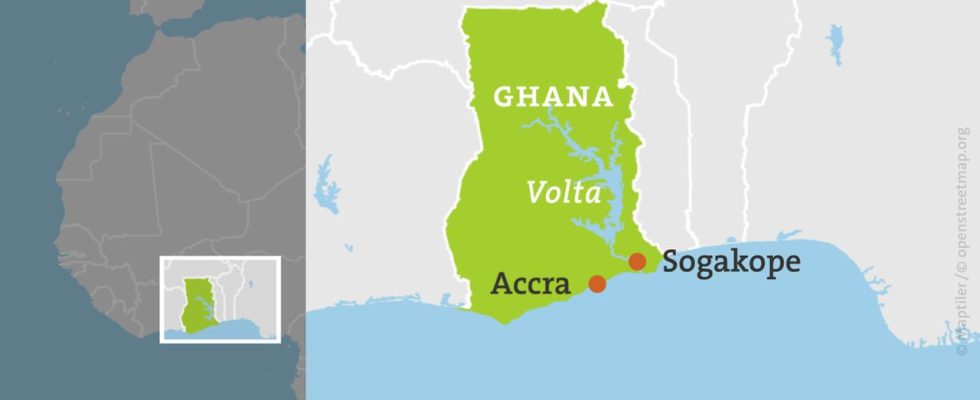report
Heavy rains and floods plague Ghana. Two reservoirs overflowed and many people lost their belongings. Now there is also the threat of epidemics.
Denda Nam stands on a hill with some women. Here she feels safe from the water. “Our communities have been flooded. The water level is frightening. We can’t do anything,” she says: “Our properties: destroyed. Our livelihoods: washed away. My house is flooded. That’s why I’m out here.”
It has been raining for days in Denda Nam’s hometown of Sogakope on the banks of the Volta River, as well as in the rest of the region in southeastern Ghana. Children cannot go to school, shops are closed.
Reservoirs overflowed
On Tuesday, due to all the rain, two reservoirs that actually supply the country with electricity overflowed. Streets, houses, entire communities: everything flooded. It’s a catastrophe with an announcement, says Denda Nam: “Disasters like this have been happening for decades. It’s now an annual event. Look at this destruction, our streets are no longer there. They have to do something about it!”
The. By this Denda Nam means the politicians, the authorities. But meteorologists and climatologists warn that heavy rainfall and flooding will likely become even more severe in the coming years.
“Little I can do”
Fisherman Michael Eshun, who also lives in Sogakope, says that friends who live on the other side of the river have lost their homes. “I know that my house will soon be flooded, but there is little I can do to save it,” he says: “My main concern is the safety of my family.”
So far no one has lost their life in the floods. At least that’s what the authorities assume. Rescue workers like Seji Saji are working at full speed and have already asked thousands of people to leave their homes. “We have already relocated 3,000 people here on site, and there could be more,” he says: “The water level probably won’t go down in the next four to five days.”
Harvests fail
Saji is the Deputy Director General of the National Disaster Management Organization (NADMO). So far, a total of 26,000 people in eastern Ghana have been asked to leave their homes, he says. The navy said it had rescued thousands of people in the Volta region on the border with Togo. The long-term damage can only be guessed at: grain harvests fail, the power grid functions unreliably, and drinking water is scarce.
Eji Trader, a small business operator, gives a tour of his home. He says he’s been trudging through water here for days. But pregnant women have the biggest problem: “Many of them can’t go to the hospital. Some can’t see their doctors for prenatal care,” he says. “Others were forced to give birth alone at home during the floods. We’re afraid because of that of contaminated water. We urgently need help to prevent disease outbreaks.”
So far the situation is under control, the authorities say. But people like Denda Nam, the young mother who lost her house, are under no illusions. Floods like this will continue to plague Ghana in the coming years: “We actually want to move to a safe place. But we don’t have the money to afford a new home elsewhere.”

